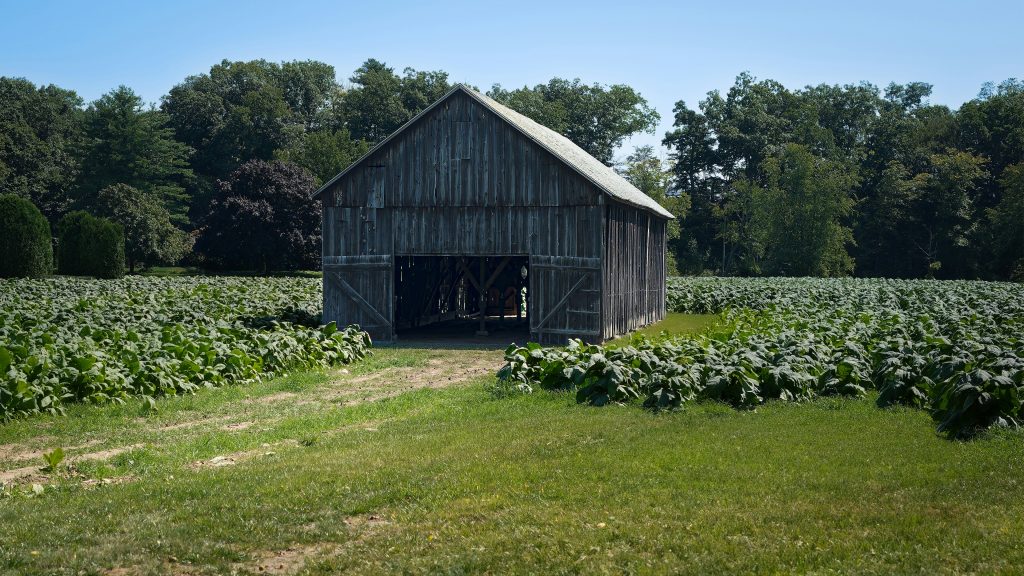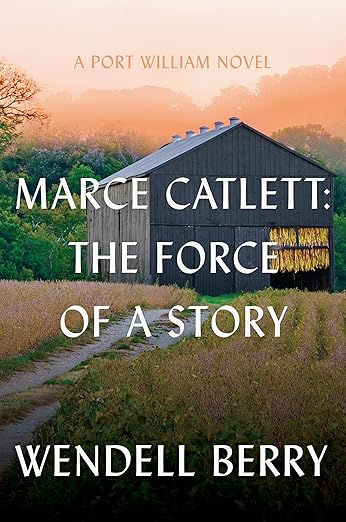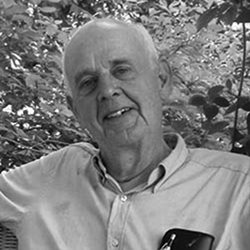
Andy Catlett, whom we first met as a boy in an earlier novel by Wendell Berry, is now an old man. As old men are wont to do, he’s looking backward – at his life, his parents’ lives, and even earlier. And what he sees, far more clearly than he would have seen in his youth, is what shaped four generations of Catletts, including himself and his own children.
It is a story, a story that happened to his grandfather, Marce Catlett, a story that happened in less than 24 hours but lasted more than a century. And it shows every sign of continuing to last.

Marce Catlett and his good friend and neighbor Jim Stedman travel together by horse and train to Louisville. Their tobacco harvests are finished for the season. Now comes the time when the crop is auctioned in Louisville.
Marce and Jim both have an unspoken apprehension about the auction. Both know what they need to make a profit and continue to farm. And both know there is one bidder at the auction – the agent of James Buchanan Duke, who controls a near-monopoly on the U.S. tobacco business.
When the auction ends, both Marce and Jim leave to return home. Their profit might cover the cost of their train tickets.
In a few short words, Marce will tell his family what happened. Fear enters the home. Fortunately for the Catletts, they won’t starve; they have livestock and some diversification of crops. But tobacco is the lion’s share of the family income.
Even then, however, that is not the story. The story is what Marce does next. He begins to make his plans for next year’s tobacco crop.

That resilience in the face of financial disaster, what can only be called theft by monopoly, is what propels the family forward. Marce’s youngest son Wheeler will go on to become a congressman’s aide, an attorney, and the force behind the creation of the tobacco farmers’ cooperative to ensure farmers could make a decent profit. It will propel Wheeler’s son Andy to become a professional writer and then a farmer and writer. And it will influence Andy’s own children.
That’s the heart of Marce Catlett: The Force of a Story, Berry’s most recent novel and what feels like the last. Berry’s Port William novels are not precisely autobiographical, but they are clearly shaped by Berry’s own experiences. Marce Catlett reads like a summing up, not only of the series of novels but also of Andy Catlett’s, and Wendell Berry’s, life. The front and back inside covers suggest that as well – the front being a chart showing the relationships of the Feltner, Coulter, Beechum, Wheeler, and Catlett families, and the back being a map of Port William and its environs.
The map is just as important as the genealogy. Together, they are two sides of the same coin – family and geography. The story that lies between them is the resilience that binds them together.
Berry is a poet, novelist, essayist, environmentalist, and social critic. His fiction, both novels and stories, are centered in the area he calls Port William, Kentucky, on the Ohio River. He’s won a rather astounding number of awards, prizes, fellowships, and recognitions. He lives on a farm in Kentucky. As he should.
Related:
My review of Berry’s That Distant Land.
My review of Berry’s Jayber Crow.
Wendell Berry and This Day: Poems at Tweetspeak Poetry.
Wendell Berry and Terrapin: Poems at Tweetspeak Poetry.
Wendell Berry’s Our Only World.
The Art of the Commonplace by Wendell Berry.
Nathan Coulter by Wendell Berry.
Andy Catlett: Early Travels by Wendell Berry.
A World Lost by Wendell Berry.
A Place on Earth by Wendell Berry.
The Memory of Old Jack by Wendell Berry.
Wendell Berry and Another Day: Sabbath Poems 2013-2023.
Top photograph: Broadleaf tobacco field by Rusty Watson via Unsplash. Used with permission.












